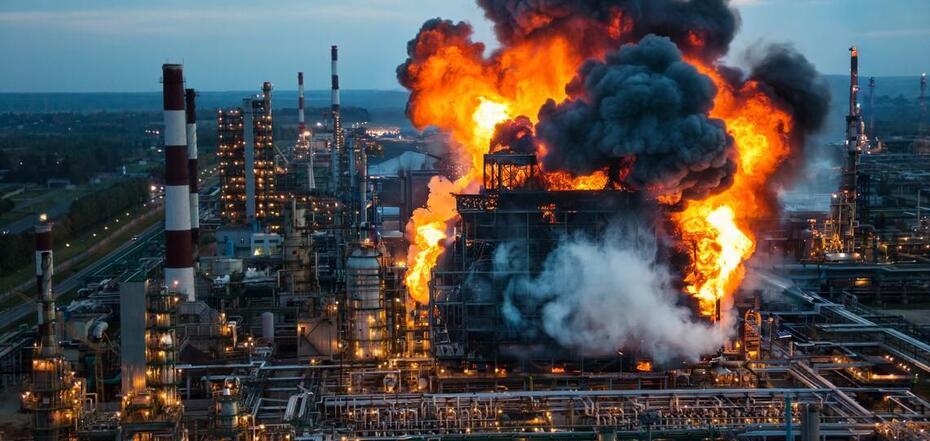War in Ukraine
"We can already see the result." Selezniov explains how strikes on Russian refineries affect the situation at the front. Video
UAV strikes on oil refineries in Russia have a negative impact not only on the economy of the aggressor state, but also on the occupiers at the front in Ukraine. In particular, Russian tanks may receive less fuel, and the money provided for in the Russian budget for the army and defense industry simply does not reach them.
This was stated by military expert Vladyslav Selezniov in a commentary to OBOZ.UA. According to him, the results of the combat work of Ukrainian drones are tangible for the Russian Federation and its occupation army.
"Russia is already losing at least 10% of its production of various types of fuel. This means that Russian tanks are getting less of the same fuel. And given that spring field work is underway, and, of course, Russian citizens need a lot of fuel, this is already creating some tension," the expert said.
If the attacks on the refineries continue, the Russian budget will lose money. The enemy army will also lose money.
"The total amount of the Russian budget is about $320 billion a year. Of this, $120 billion is allocated by the Russian Federation to support the activities of its own army, including the part involved in the so-called SDO, and, accordingly, the work of the defense industry. So, if less money comes into the body of the general budget, it is likely that some of this money will not reach the Russian defense industry or the Russian army. And this is actually great news," Selezniov said.
According to him, in recent years, the Russians have tried to create single, but very large-scale refineries. For example, the Tuapse Oil Refinery, which is located on the Caucasian spit of the Black Sea, which has recently been hit by a large-scale "bombing," produced many types of fuel for both aircraft and armored vehicles.
After the destruction of part of the production, the expert noted, the enemy began to lose resources and was forced to impose limits on the use of certain types of fuel in combat units that perform tasks within the framework of so-called special military operations.
"Yes, there are still many other refineries in Russia, but the destruction of certain elements of this production creates an additional logistical burden. For example, fuel must be transported not 100 kilometers from key consumers, but 1,500 kilometers away. This puts a strain on the railroad infrastructure and creates a certain delay in the delivery time of a particular type of petroleum product. In addition, not only refineries are being destroyed, but also shipping stations and relevant modules that ensure the import of products. So, there is a reason why the Russian government contracts certain oil product reserves in neighboring Belarus and neighboring Kazakhstan," Selezniov said.
As reported by OBOZ.UA, on the night of May 1, explosions occurred at the Ryazan Oil Refinery. Another energy enterprise of the aggressor state was attacked by drones, and a powerful fire broke out at the refinery after the hit: the primary oil refining unit was burning.
Only verified information is available on our Telegram channel OBOZ.UA and Viber. Do not fall for fakes!



























